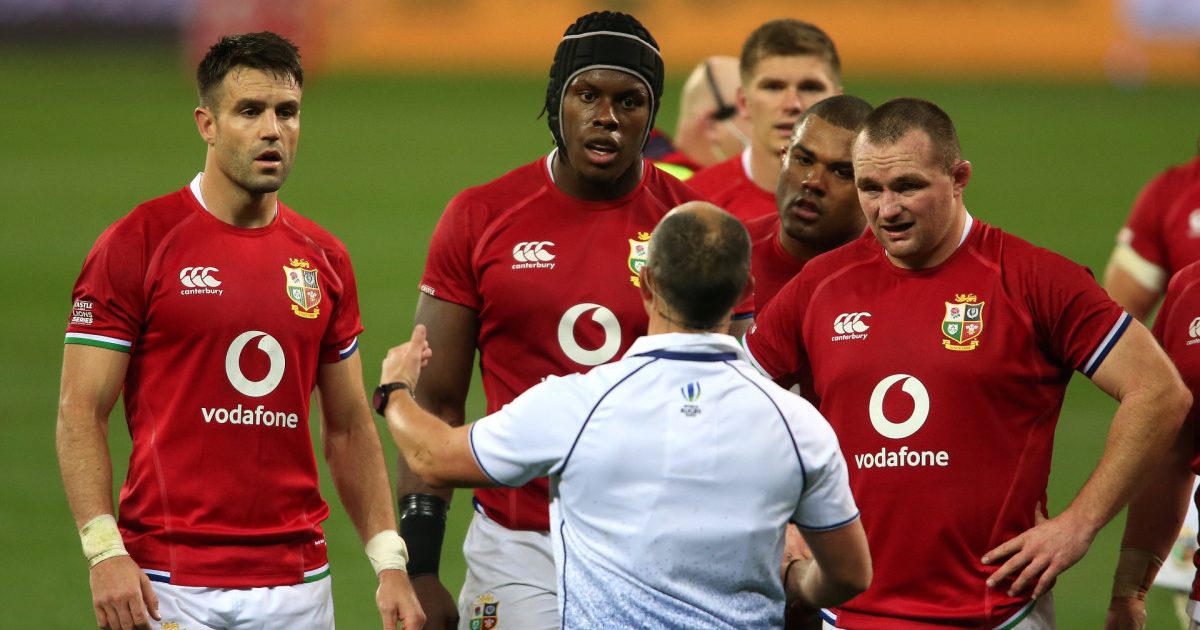The key questions to emerge from British and Irish Lions' tour to South Africa

The British and Irish Lions ended their tour of South Africa with a 2-1 series loss sealed by Saturday’s 19-16 defeat at Cape Town Stadium.
Here the PA news agency looks at some questions emerging from the aftermath of the event.
Are South Africa worthy winners?
Over the course of the three Tests, South Africa edged it and produced the only truly dominant period of rugby when they took ownership of the second half of the second Test, scoring 21 unanswered points. Given the major outbreak of Covid that severely disrupted their build-up and the injuries sustained to key players such as Duane Vermeulen and Pieter-Steph du Toit, they had to overcome adversity to deservedly clinch the series, although the Lions will always be haunted by the opportunities to claim the series for themselves.
What happens now?
The Irish Lions are able to quarantine at home, but as they are returning from a red list destination the English, Welsh and Scottish players will spend 10 days in Jersey where they will be joined by their families before reaching their final destinations. Warren Gatland heads to his native New Zealand on Sunday where he will quarantine in a hotel for 14 nights and then resume as Waikato Chiefs coach. England players begin a mandatory 10-week stand down period consisting five weeks rest away from their club and five weeks of being unavailable for selection. South Africa boss Rassie Erasmus, meanwhile, faces a misconduct charge from World Rugby for his unprecedented attack on the officials from the first Test as his Springboks immediately embark on their Rugby Championship campaign.
What has the tour done for the Lions?
Thanks to a superhuman effort from organisers, coaches, players and staff, the Lions defied the coronavirus pandemic to complete a tour that at times faced an uncertain future. Only those involved will understand the hardship of being in a bubble environment for eight weeks and to emerge with a unified squad that almost snatched the series is a fine achievement in itself. The absence of fans left a chasm at the heart of the enterprise, however, to underline the crucial role the 25,000 travelling supporters play in bringing Lions tours to life. Without them, even interest back home dwindled.
What has it done for rugby?
Possibly the most toxic Lions tour of them all grabbed headlines for all the wrong reasons. Erasmus has emerged as rugby’s pantomime villain after he tore up the etiquette of using the traditional media to send messages to referees by instead releasing online a staggering hour-long critique of the officials’ performance from the second Test. It worked too as a week later they spent an inordinate amount of time consulting the TMO to make sure they got calls right. And if Erasmus’ scheming felt like it trampled over an unwritten code, then the tactics used by both teams had even purists reaching for the off switch on their remotes. Some rugby finally broke out in the final Test when Finn Russell stepped on to the pitch, but the series was hardly a showcase for the sport. Even former South Africa boss Peter de Villiers described the side he once coach as “very, very boring”.
Will Gatland lead the next tour?
He has not ruled it out. When asked after the game, he gave an answer that left his options open. In losing to South Africa, his unbeaten record as head coach went up in flames but there is no shame in losing to the world champions while dealing with the limitations necessitated by the coronavirus pandemic. As the greatest Lions coach of the professional era, Gatland has emerged as a worthy heir to Sir Ian McGeechan, but at 57-years-old does he have the appetite to be at the helm in Australia in four years’ time? That will become clearer over the coming months, but if his association with the tourists is over then Gregor Townsend and Andy Farrell will come into contention.

























































